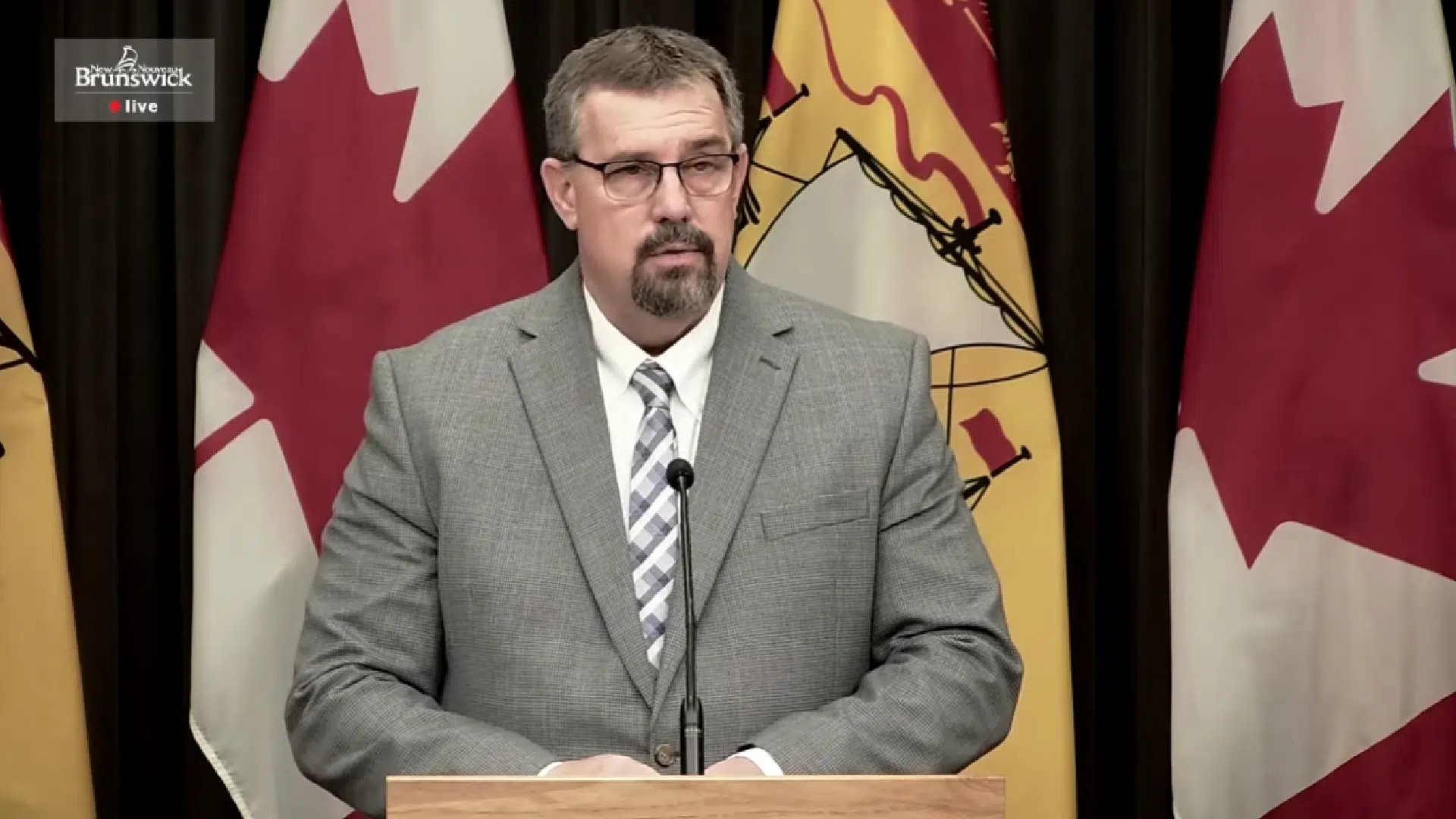New Brunswick has unveiled its proposed new program that will replace French immersion next fall.
Education Minister Bill Hogan introduced the changes during a Thursday morning news conference in Fredericton.
Hogan, who just took over the portfolio two months ago, said the goal is to ensure all anglophone students graduate with at least a conversational level of French.
“French second-language training in the anglophone sector has led to less than half of our high school graduates being able to speak French at a conversational level,” said Hogan.
Starting in September, anglophone students in kindergarten and Grade 1 will spend half of their day “engaged in exploratory learning in French.”
The other half of the day will be taught in English on subjects such as math, reading and writing, said Hogan.
“Through the model, students will be able to immerse themselves in French from a young age, interacting with their peers and exploring their surroundings and environment in French,” he said.
Students will continue the 50/50 split of French and English learning throughout their elementary school years.
Once they reach middle school, they will spend 40 per cent of their day taught in French and 60 per cent in English.
“Math, reading and writing are taught in English so that students are supported in getting the foundational skills they need for their long-term success,” said Hogan, who said the framework will also address “very real concerns” surrounding class imbalances and streaming in the anglophone sector.
Hogan said students will have “opportunities for enrichment and advanced studies in the French language” once they enter high school.
“The same way that we have students that would like to have greater enrichment in math by taking calculus or IB courses,” he said.
There will be no changes for students entering Grade 2 through 12 in the fall, said Hogan. That means students previously enrolled in English Prime, French immersion, or a Language Learning Opportunities initiative will continue along their current path.
“All of this was designed with minimizing disruptions for students already in the education system,” he said.
Hogan said the proposed program will also provide flexibility for schools that would not be able to meet all criteria to roll out fully in the 2023-24 school year.
“That said, these schools will still be required to prepare to reach a 50/50 English/French learning for kindergarten and Grade 1 students within the next two years,” he said.
Hogan also defended his government’s decision to implement the changes a year sooner than anticipated, arguing the process has “not been rushed.”
The education minister was asked how the province would ensure there are enough French teachers in place, especially with current teacher shortages in the province.
Hogan said the province understands that it has a challenge in terms of recruitment.
“We think that we’re probably going to need somewhere around 60 additional teachers and we’ve already started that process of recruitment,” he said.
The province will host a series of public consultations over the coming weeks to get input from New Brunswickers.
An online survey launched on Tuesday and a series of virtual and in-person consultations will take place early in the new year.
Sessions will take place in Bathurst on Jan. 17, in Moncton on Jan. 19, in Saint John on Jan. 24, and in Fredericton on Jan. 25. Each session will run from 6:30 to 8:30 p.m.
Virtual sessions will also take place on Jan. 31 and Feb. 2.






Comments